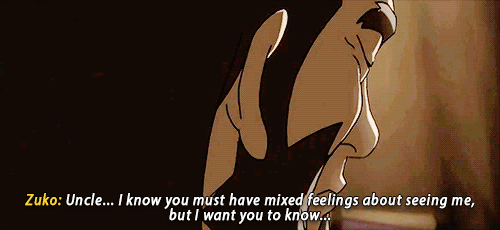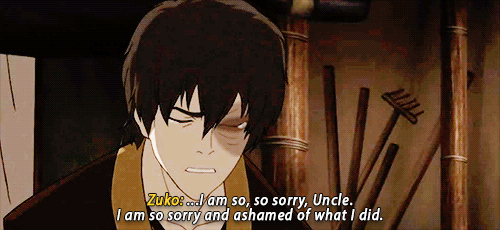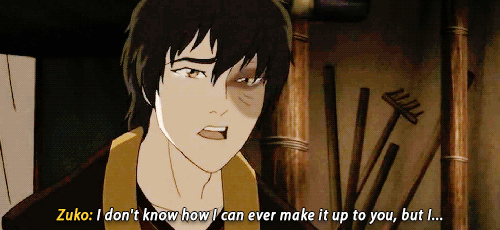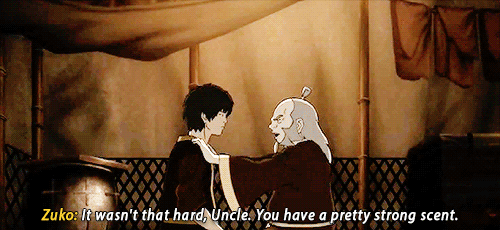Two Years Ago @emis Had The Most Iconic Encounter In Her Life And Two Years Later I Finally Drew It



two years ago @emis had the most iconic encounter in her life and two years later I finally drew it

More Posts from Nasenaya and Others
ARTIST ALLEY STARTUP GUIDE
Hello! My name is Toril, or Starlock, and I’m an independent comic artist! In the past two years I’ve tabled at a number of extremely different conventions, including Boston Comic Con, Rhode Island Comic Con, Otakon Vegas, Anime Boston, Emerald City Comic Con, MoCCA Fest, TCAF, Anime NEXT, Anime Expo, Otakon, SPX, MICExpo, and YaoiCon.
Prior to this, I had never sold anything at a convention before, and I had barely considered the possibility of being able to make a living from my own work. To put it simply: I had no idea what I was doing. I would have crashed and burned without the help of my incredible friend Emily, but since not everyone has a friend who’s been making a living off of anime conventions for years, I thought I’d put together a post about everything I’ve learned to help out artists who may be thinking about jumping on this train.
Full disclosure: I was able to earn back my expenses (and profit) at every con I attended except Otakon Vegas and TCAF. Otakon Vegas in 2014 was a small con with low attendance, high expenses, and I was ill prepared. At TCAF 2014, I failed to account for the currency exchange rate in spite of selling out of everything, and spent a lot on transporting books over the border (I’m from the US and couldn’t drive at the time).
Of course, every person’s work, circumstances, and personality are wildly different, and your experiences will assuredly vary from mine. I can’t guarantee your success. However, I learned a remarkable amount about art, business, and checked bag fees over the past few years, and I hope what I include here proves valuable (or at least interesting) to anyone who’s interested in the North American con circuit!
☆
Before you even think about choosing a convention to attend or what you’re going to sell, there’s an unfortunate truth we have to get out of the way: You need to spend money to make money. I recommend setting aside $500 USD for registration, production costs, travel, and other expenses. This is an extremely rough estimate. Your actual expenses will vary wildly– that said, be prepared to spend at least this much. Anything you save is a bonus.
☆ TYPES OF CONVENTIONS
Choosing the first con that you’ll sell at– or any con, for that matter– can be overwhelming.
Comic: once a haven only for fans of the classic DC and Marvel empires, comic cons now often invite videogame, television, and film guests and companies. Cons like NYCC and SDCC are some of the biggest in the country, but can be difficult to land a table at, especially for a newcomer.
Anime: Mostly centered around fandoms for Japanese media and culture. AnimeExpo and Otakon are among the largest in the US, but more and more are founded every year, and you can find them all over the country.
Small Press: Shows dedicated to independent comics, webcomics, zines, and their creators– shows like TCAF, VanCAF, SPX, and MoCCA can be quite exclusive, as well as expensive– MoCCA’s 2015 tables went for $460 each. Never be afraid to apply, though, because they’re always on the lookout for new blood!
Furry: Cons specifically geared towards furries, and furry and anthro artists. I personally have not been to a furry con, but I’ve heard they can be extremely profitable for artists.
Try to choose a con that suits your taste and intended audience! Artist Alley is the most common name for the venue set aside for independent artists and craftspeople to sell their products. Artist alley tables can range from $50-500, but usually fall around the $75-150 range. Larger cons also often have Dealer’s Halls which provide space for vendors, publishers, and artists who have a lot of stock. Dealer’s Hall booths tend to be far more expensive, often upwards of $1000.
If the cost is daunting, or you’re afraid that you won’t have enough merchandise to display at your table, consider splitting with an artist friend! I’ve split a table several times and it has never affected my sales– if anything, it makes the whole con a lot more fun~ you’ll have someone to talk to and complain with, and you can take turns watching the table while the other takes a break! I can’t recommend splitting a table with more than one other person, however, unless you all only have a few items to sell.
Signup is usually six months to up to a year in advance– get on mailing lists, follow con twitter accounts, and keep an eye out for announcements! Some cons sell out in seconds after they open for artist alley signup, others have tables available for months.
If you can, try to find an event happening in your area– close enough that you won’t have to pay for a hotel or transportation (aside from gas or a train ticket). However, beware smaller cons that no one seems to have heard of! Even if it’s in the neighborhood, putting time and money into preparing for a con where there will be more artists than attendees isn’t worth it. It also helps to apply for a table at a con you’ve been to before as an attendee! That way you’ll have a feel for what people sell there, the attendance, and what the general atmosphere is like. Don’t make any travel arrangements until you’re sure you’ve got a table at the con.
☆ MERCHANDISE
I don’t have time to go into detail on how to make merchandise– and there are tutorials for making nearly anything online– but figuring out what you’re going to be selling is important! You’re also going to have to decide whether to manufacture it yourself or pay to have it done for you. Here are some products I’ve seen sold at cons to give you an idea of what’s possible: business cards, prints, postcards, bookmarks, keychains & phone charms, stickers (some cons don’t allow stickers: make sure you’ll be able to sell them beforehand!), comics (zines, books, etc), printed sketchbooks and artbooks, dolls & plushes, apparel, patches, washi tape, buttons & badges, and commissions.
FAST PRICE GUIDE (USD):
8x10" print - 10$ or 3/$25
11x17" print - 15$ or 2/25$
books: 3x the printing cost per book
Always bring AT LEAST enough merchandise so that if you sold 100% of it, you’d earn double your expenses.
☆ FAN vs ORIGINAL CONTENT
There’s a lot of waffle over whether original content or fanart sells better at conventions, and the truth is that in my experience, there’s no solid answer to this question. The best advice I can offer is: make what you care about.
It doesn’t matter if it’s fan art for the latest, trendiest manga, or a promotional poster for your own webcomic– your audience can tell when your heart isn’t in the work. If you make things to sell based solely on what you imagine is popular at the time of the con, you won’t get very far.
Do not make fan art of independent properties– especially if they’ve asked publicly that no unlicensed merchandise be sold. It’s disrespectful, and can be damaging to their business. The ethical and legal dilemma around the production and sale of fan art in general is not one I want to get into in this post, but I tend to support fan culture.
If you don’t have an audience for your original content already, it’s true that no one will know what it is and that it will be harder to sell it. That’s okay! You’re at the con to promote your work, and you have to start somewhere.
☆ PRODUCTION TIPS
Make sure everything’s in your hands a week in advance before the con.
If you’re printing books, try to leave enough time to order proofs. Make sure everything you’re bringing can fit in your bags without being damaged. For prints, you can buy a file case, but I find the box they’re shipped (if you’ve ordered them online) in works just fine.
☆ TABLE DISPLAYS
There are a number of display methods, but the two most common are wire storage cube displays and pipe/clamp displays. I prefer the latter– for a basic pipe display, you will need:
2x Irwin Quick-Grip Clamps
6x 24" long, ½" diameter PVC pipes
1x 18" long, ½" diameter PVC pipe
6x ½" diameter straight PVC pipe connectors
2x ½" diameter elbow PVC pipe connectors
this will run you around $30 USD at a home improvement warehouse like Home Depot or Lowe’s.
You may also need: book stands, business card holders, tape, scissors, zipties for the cubes, clips, and post-its to write prices on.
Here’s a shortlist of online manufacturers & printing services!
Fireball Printing
Catprint
Vistaprint
Gotprint
OvernightPrints
RA Comics Direct
Keness
1984 Printing (vegan!)
Amazon Createspace
Artscow
Digital Art Wear
Zap Creatives
☆ TRAVEL
Pack light. Most of your luggage will be your merchandise & display. Bring a change of clothes, toiletries, and other essentials– phone, sketchbook, etc. Leave valuable jewelry and electronics at home.
ESSENTIAL CON EQUIPMENT
- tax papers & registration confirmation & cheques (you may have to pay your taxes at the con, or register for a table for next year!)
- square reader (or equivalent mobile POS system) + smartphone + exta battery
- notebook to keep track of sales
- water bottle & snacks, painkillers, any meds you take
- small bills for change
- do NOT bring a cash box. they’re bulky, heavy, and more likely to get stolen than a money pouch.
Be aware that most domestic US airlines start charging you anywhere from $50-200 if your bag is oversized or over 50lb. You can usually avoid a 50lb+ bag by having two smaller suitcases. Most airlines will also let you check boxes or crates, provided they’re securely sealed and labeled. CHECK on your airline’s website before getting to the airport so you won’t be surprised by a fee.
Be careful taking luggage on Amtrak or buses: usually you’re only allowed one piece of checked baggage, and Amtrak sometimes won’t take check bags at all.
Do NOT book a connecting flight to the con. You don’t want to miss your connection and arrive a day late!
Do NOT carpool with strangers. Ever.
Cons often offer deals on rooms at nearby or sponsoring hotels. These are the most convenient option but can still be pricey– if you have friends going to the con, share the room! I find 3-5 people can generally split an average hotel room comfortably, as long as everyone manages to be respectful and sensible. If you have friends or family in the area, ask if they can put you up! Of course, pay them back with a dinner date or baked goods~ Finally, check out AirBNB! You’d be surprised at the level of accommodation you can find.
Here is a list of travel services and airlines that come recommended: kayak.com, MegaBus, Porter Air, Jet Blue, Southwest Airlines, Virgin America, Alaska Airlines, Amtrak
☆ AT THE CON
Confirm that you’ve arrived with the Artist Alley staff, check in for your table, and set up ASAP. Confirm what times the artist alley opens & closes. Ask if the hall will be locked overnight– most cons do this, so you can leave your things under the table (NEVER leave your money or any valuables unattended)
REMEMBER: you’re at the con as a working professional. Act like it!
Get to your table before the alley opens. Regardless of how busy you think business will be, it’s nice to be early. Greet potential customers warmly and engage them in conversation.
Some fall-back lines I use: “How’s the con so far?” “ I like your cosplay/outfit/hair!” “Are you dressed as ____? They’re my favourite character from ____!” “ What’s going on out there? I’ve barely left my table” “This is my webcomic, it’s about _____” etc.
NEVER TALK DOWN YOUR WORK. If you can’t speak about your work or yourself without being self-deprecating, why are you at the convention? If you don’t love your work, why should anyone else? This is the most important point in this entire post.
Never pressure anyone into a sale.
If business is slow and nothing’s going on, feel free to pass the time by drawing, checking your phone, or otherwise occupying yourself– but pay attention. I can’t tell you how disappointing it is to go up to an artist and find them withdrawn behind their table and totally off in their own little world, with barely a word to say to their fans. A lot of us– artists and fans alike– are shy, but we’re all people. Make an effort. Be polite.
SELF CARE:
- drink lots of water
- eat properly
- get enough sleep
Finally, get out from behind your table and walk around! You’ll never know who you’ll run into, what cool artists you’ll discover, or what new friends you’ll meet!!
☆ PROFIT!
Congratulations! You’ve spent a weekend selling your own merchandise, and you’ve earned back your expenses– and then some. Treat yourself to dinner with some of your fellow artists, you deserve it!
…or maybe it didn’t go so well. If you weren’t able to break even, it’s okay. Take a deep breath. It’s not easy to earn a living with your art alone, and conventions are by no means a reliable source of income. Even the most profitable cons– and artists– have off years. However, now isn’t the time to make excuses. Ask yourself the following questions– and be honest when you answer them. It’s likely your answers will tell you why you weren’t as successful as you hoped you’d be:
1. Do I have a significant pre-existing following online– fans who are ready and willing to buy my products? Did they know I would be here?
2. Did I bring enough merchandise to sell? Did I price it correctly?
3. Was the con busy, or was it clearly low attendance? If it was busy, was my table ignored or bypassed due to a poor or unclear display?
4. Was I friendly, polite, and engaging? Did I make an effort to sell my products and appear happy to be there?
5. Are my products appealing and well-crafted?
When it comes down to it, you should not be attending a convention if all you want to do there is make money. Cons are an opportunity to meet and befriend peers in your field– people from all over the country (and world) who you would otherwise only interact with online. Don’t be afraid to spend time socializing, buy the things you like, and remember– stay in touch! The weekend will be over before you know it, but you’ll be chatting online (and meeting up at future cons) with your friends for years to come.
And finally, the last piece of advice I have to offer:
DO YOUR TAXES!!!
Finishing Voltron s8


Only talk to me about Keith with a ponytail and nothing else thank u










one of the best heartwarming scenes between Zuko and Iroh. The fact that Zuko is truly repentant and Iroh is unconditionally forgiving despite everything he’s endured. And of course, they can make you cry one moment and laugh in the next.










Assassin’s Creed: Valhalla - concept art by Even Amundsen
my dad–also a writer–came to visit, and i mentioned that the best thing to come out of the layoff is that i’m writing again. he asked what i was writing about, and i said what i always do: “oh, just fanfic,” which is code for “let’s not look at this too deeply because i’m basically just making action figures kiss in text form” and “this awkward follow-up question is exactly why i don’t call myself a writer in public.”
he said, “you have to stop doing that.”
“i know, i know,” because it’s even more embarrassing to be embarrassed about writing fanfic, considering how many posts i’ve reblogged in its defense.
but i misunderstood his original question: “fanfic is just the genre. i asked what you’re writing about.”
i did the conversational equivalent of a spinning wheel cursor for at least a minute. i started peeling back the setting and the characters, the fic challenge and the specific episode the story jumps off from, and it was one of those slow-dawning light bulb moments. “i’m writing about loneliness, and who we are in the absence of purpose.”
as, i imagine, are a lot of people right now, who probably also don’t realize they’re writing an existential diary in the guise of getting television characters to fuck.
“that’s what you’re writing. the rest is just how you get there, and how you get it out into the world. was richard iii really about richard the third? would shakespeare have gotten as many people to see it if it wasn’t a story they knew?”
so, my friends: what are you writing about?
People talk a lot about how reading is necessary for writing, but when you really want to improve your writing, it’s important to go beyond just simple reading. Here are some things to do when reading:
Note how they begin and end the story. There are a ton of rather contradictory pieces of advice about starting stories, so see how they do it in the stories you enjoy. Don’t only look at the most popular stories, but look at your more obscure favorites.
See what strikes you. Is it fast or complicated scenes with a lot of emotions? Is it stark lines? Pithy dialogue? What do you remember the next day?
Pay attention to different styles. It’s not just whether they use past or present tense, first or third person. It’s whether the writing is more neutral or deeper inside character’s heads. Do they use italics? Parentheses? Other interesting stylistic choices? Take the ones you like and try them out in your own writing. See what works and what doesn’t.
Keep track of how they deal with other characters. Do we see a lot of secondary character each for very brief periods of time or are there a couple that show up a lot? How much information do we get about secondary characters? Do they have their own plots or do their plots revolve entirely around the main characters?
Count how many plots there are. Is there just one main plot or are there multiple subplots? Are the storylines mostly plot-based or character-based?
Pay attention to what you don’t like. If you don’t like what’s going on in a book or even just a scene, note what it is. Does the dialogue feel awkward? Are the characters inconsistent? Does the plot feel too convenient or cobbled together? Does the wording just feel off? See if you can spot those issues in your own writing, especially when reading a completed draft or beginning a later draft.

did someone say noragami?
What's your writing routine like?

-
 science-is-better liked this · 7 months ago
science-is-better liked this · 7 months ago -
 akirance reblogged this · 8 months ago
akirance reblogged this · 8 months ago -
 kate10505 liked this · 11 months ago
kate10505 liked this · 11 months ago -
 moon-light-mistress reblogged this · 1 year ago
moon-light-mistress reblogged this · 1 year ago -
 chaoticcalmcrying liked this · 4 years ago
chaoticcalmcrying liked this · 4 years ago -
 flirtyv4mp1r3 liked this · 4 years ago
flirtyv4mp1r3 liked this · 4 years ago -
 pattch liked this · 4 years ago
pattch liked this · 4 years ago -
 bi-me-stuff-and-call-me-pretty liked this · 4 years ago
bi-me-stuff-and-call-me-pretty liked this · 4 years ago -
 themutetopez liked this · 4 years ago
themutetopez liked this · 4 years ago -
 rose-sunlight liked this · 4 years ago
rose-sunlight liked this · 4 years ago -
 swansoui reblogged this · 4 years ago
swansoui reblogged this · 4 years ago -
 rainy-doe liked this · 4 years ago
rainy-doe liked this · 4 years ago -
 doremifasolangelo liked this · 4 years ago
doremifasolangelo liked this · 4 years ago -
 indecisivemisfit liked this · 4 years ago
indecisivemisfit liked this · 4 years ago -
 highmuneca liked this · 4 years ago
highmuneca liked this · 4 years ago -
 ackerskeith liked this · 4 years ago
ackerskeith liked this · 4 years ago -
 eeeeeeea liked this · 4 years ago
eeeeeeea liked this · 4 years ago -
 nezcaly liked this · 4 years ago
nezcaly liked this · 4 years ago -
 coldcrownkitten liked this · 4 years ago
coldcrownkitten liked this · 4 years ago -
 bronzewitchhazel liked this · 4 years ago
bronzewitchhazel liked this · 4 years ago -
 kind-hufflepuff liked this · 4 years ago
kind-hufflepuff liked this · 4 years ago -
 thatsroughbuddy0326 liked this · 4 years ago
thatsroughbuddy0326 liked this · 4 years ago -
 monada43 liked this · 4 years ago
monada43 liked this · 4 years ago -
 zaphe liked this · 4 years ago
zaphe liked this · 4 years ago -
 karasbroken-sanity liked this · 4 years ago
karasbroken-sanity liked this · 4 years ago -
 pixel-witchy liked this · 4 years ago
pixel-witchy liked this · 4 years ago -
 lersbern liked this · 4 years ago
lersbern liked this · 4 years ago -
 righterthatwrites liked this · 4 years ago
righterthatwrites liked this · 4 years ago -
 violetearsy liked this · 4 years ago
violetearsy liked this · 4 years ago -
 toffifes reblogged this · 4 years ago
toffifes reblogged this · 4 years ago -
 hanniballecterkinnie liked this · 4 years ago
hanniballecterkinnie liked this · 4 years ago -
 mishamscef liked this · 4 years ago
mishamscef liked this · 4 years ago -
 sucrepudding liked this · 4 years ago
sucrepudding liked this · 4 years ago -
 snowelysium liked this · 5 years ago
snowelysium liked this · 5 years ago -
 icenose reblogged this · 5 years ago
icenose reblogged this · 5 years ago -
 lionheartsblog reblogged this · 5 years ago
lionheartsblog reblogged this · 5 years ago -
 r-e-v-o-l liked this · 5 years ago
r-e-v-o-l liked this · 5 years ago -
 girloikawa liked this · 5 years ago
girloikawa liked this · 5 years ago -
 bringonthebutteflies liked this · 5 years ago
bringonthebutteflies liked this · 5 years ago -
 deanna015 liked this · 5 years ago
deanna015 liked this · 5 years ago -
 akazapologist liked this · 5 years ago
akazapologist liked this · 5 years ago

